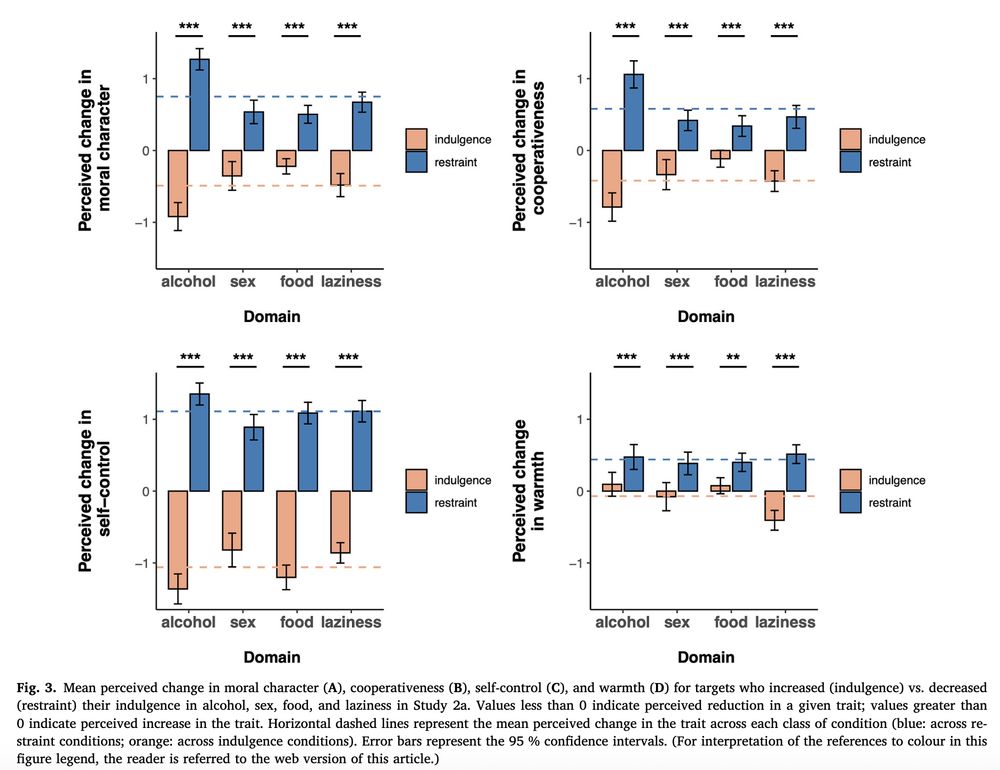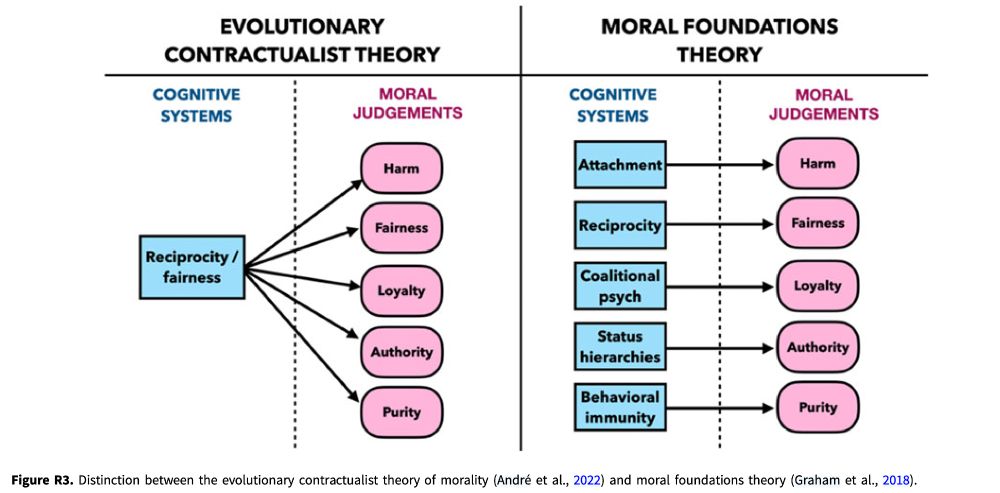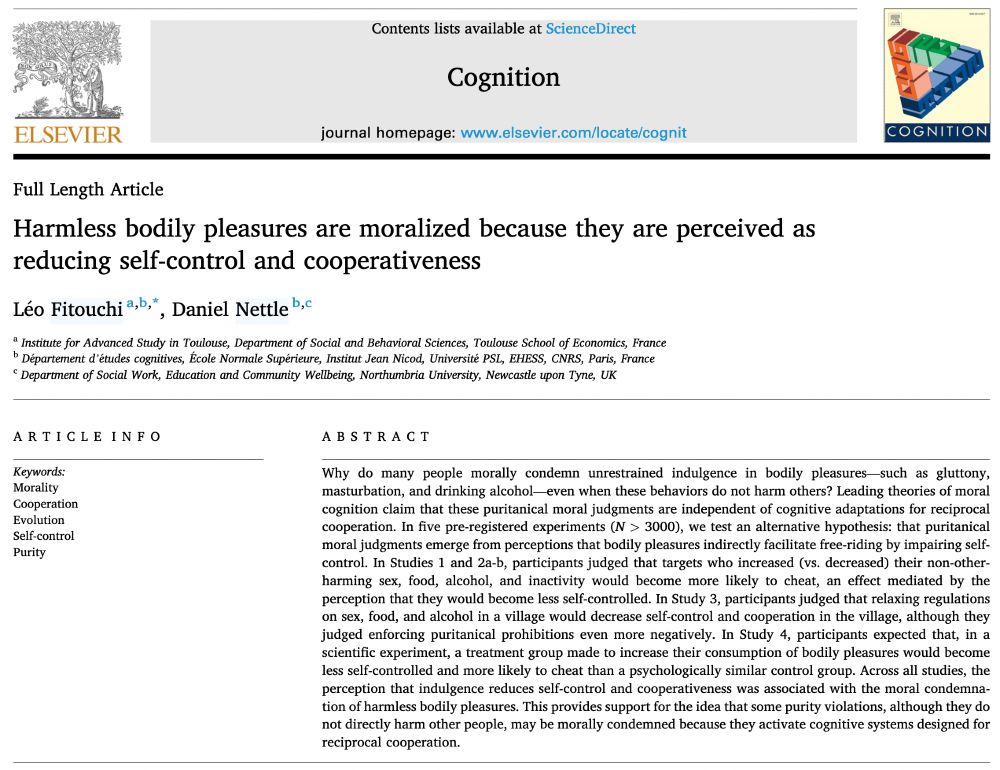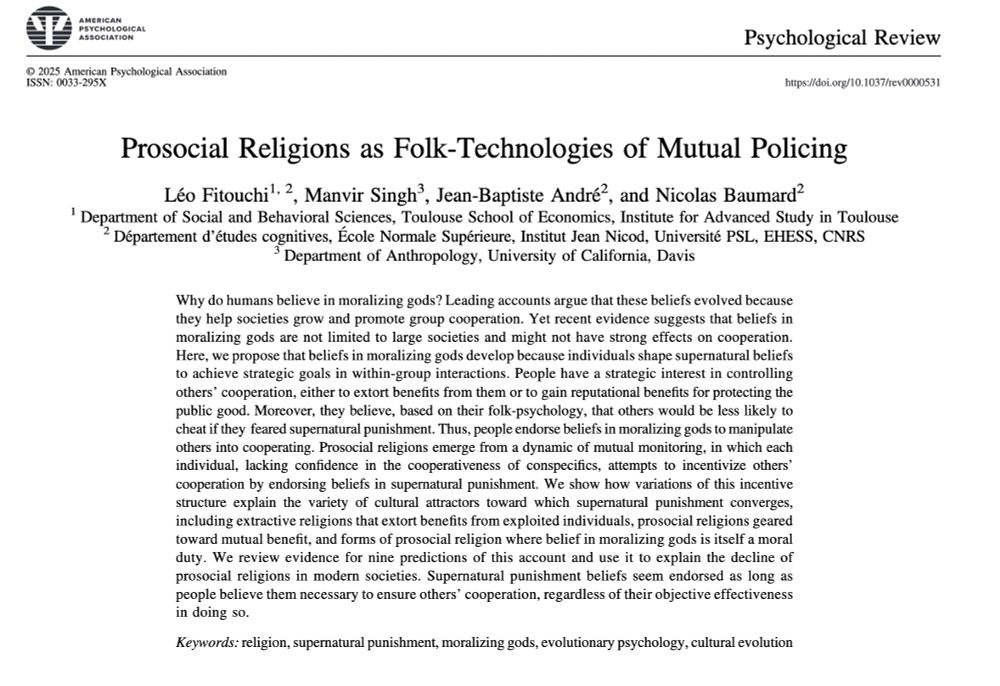
Research fellow at @iastoulouse.bsky.social @tse-fr.eu. PhD ENS Paris.
Website: https://sites.google.com/view/leofitouchi/home

We asked participants to predict the outcome of an experiment manipulating indulgence. Results were similar—suggesting a causal belief.

We asked participants to predict the outcome of an experiment manipulating indulgence. Results were similar—suggesting a causal belief.
The more people see indulgence as decreasing self-control & coop—and restraint as increasing them—the more they morally condemn bodily pleasures.

The more people see indulgence as decreasing self-control & coop—and restraint as increasing them—the more they morally condemn bodily pleasures.
(⚠️Note: The mediator wasn’t manipulated experimentally: these results are correlational!)

(⚠️Note: The mediator wasn’t manipulated experimentally: these results are correlational!)

Harmless bodily pleasures may be moralized because they’re seen as impairing self-control—a capacity needed to refrain from cheating.

Harmless bodily pleasures may be moralized because they’re seen as impairing self-control—a capacity needed to refrain from cheating.
Monists argue that all moral judgments, despite their diverse content (e.g. purity, fairness), are produced by a single calculator in the mind (e.g. reciprocity).
Pluralists disagree: we need distinct mechanisms beyond reciprocity.

Monists argue that all moral judgments, despite their diverse content (e.g. purity, fairness), are produced by a single calculator in the mind (e.g. reciprocity).
Pluralists disagree: we need distinct mechanisms beyond reciprocity.
Why do people moralize harmless carnal sins (e.g. gluttony, masturbation)?
@danielnettle.bsky.social & I find that these behaviors activate reciprocity-based moral judgment—no need for a distinct "purity" module.
50 days free link: authors.elsevier.com/a/1l18D2Hx2-...

Why do people moralize harmless carnal sins (e.g. gluttony, masturbation)?
@danielnettle.bsky.social & I find that these behaviors activate reciprocity-based moral judgment—no need for a distinct "purity" module.
50 days free link: authors.elsevier.com/a/1l18D2Hx2-...
Check the pdf to find out more! drive.google.com/file/d/1NTv8...

Check the pdf to find out more! drive.google.com/file/d/1NTv8...


While it’s not clear that beliefs in moralizing gods *actually* make people more cooperative, it’s clear that people *think* that they do.

While it’s not clear that beliefs in moralizing gods *actually* make people more cooperative, it’s clear that people *think* that they do.
(see cool papers by @bgpurzycki.bsky.social & many others)

(see cool papers by @bgpurzycki.bsky.social & many others)


Our Psych Review paper argues: neither. Let’s rethink their cognitive & evolutionary origins🧵
w/ @manvir.bsky.social @nbaumard @jbaptistandre.bsky.social
doi.org/10.1037/rev0...

Our Psych Review paper argues: neither. Let’s rethink their cognitive & evolutionary origins🧵
w/ @manvir.bsky.social @nbaumard @jbaptistandre.bsky.social
doi.org/10.1037/rev0...


1. The monism-pluralism debate. Are all moral judgements, despite the diversity of their content (e.g., purity, fairness, authority), produced by a single calculator in the mind?

1. The monism-pluralism debate. Are all moral judgements, despite the diversity of their content (e.g., purity, fairness, authority), produced by a single calculator in the mind?


